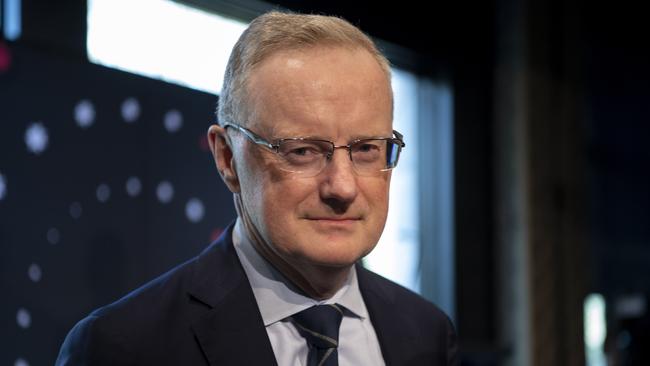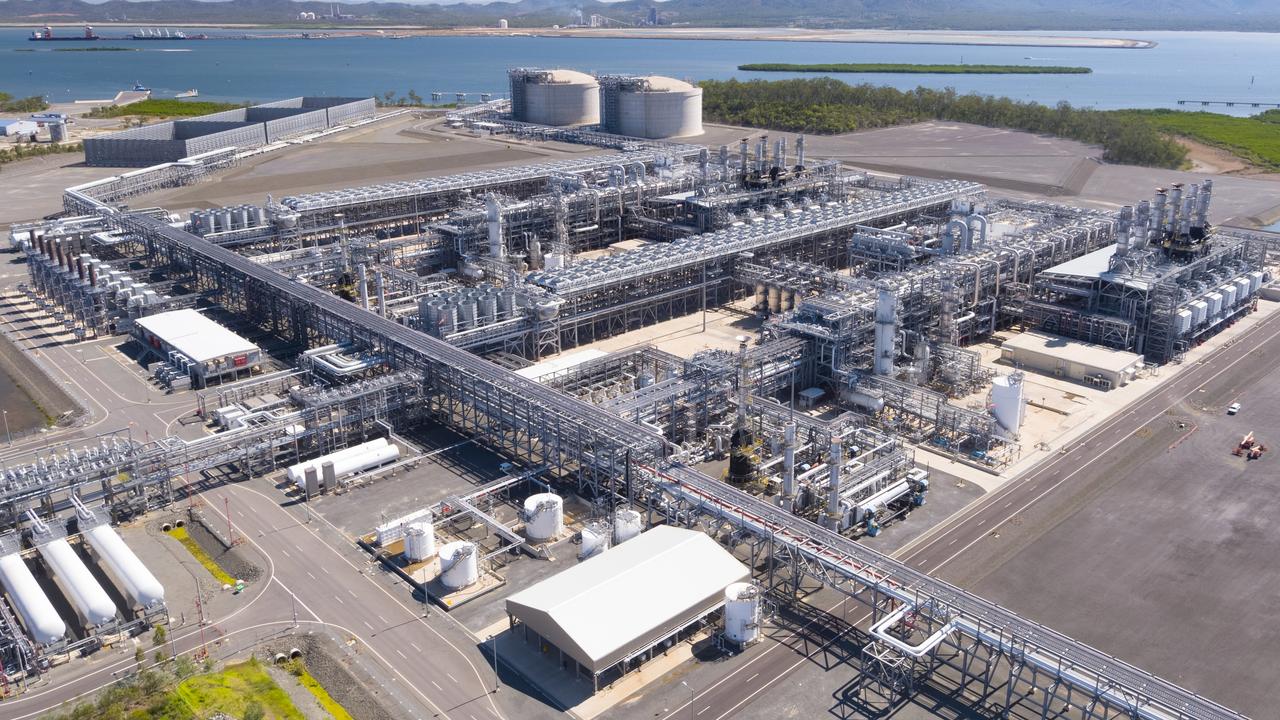No recession if RBA stops hiking interest rates soon
Australia should avoid an outright recession as long as the RBA stops hiking soon, but the economy will ‘slow significantly’, according to CBA’s Gareth Aird.

Business
Don't miss out on the headlines from Business. Followed categories will be added to My News.
Australia should avoid an outright recession as long as the RBA stops hiking soon, but the economy will “slow significantly”, according to CBA’s Head of Australian Economics Gareth Aird.
House prices are expected to fall 15 per cent on average from their April 2022 peak, and the unemployment rate is expected to jump to 4.3 per cent from a 50-year low of 3.4 per cent this year.
But while a quarterly contraction in economic activity is a “distinct possibility” and a “per capita recession” is likely, two consecutive quarters of negative growth is “not our base case,” Aird says.
Still, his view that the RBA will be able to engineer an elusive “soft landing” for the national economy, is contingent on his assumption that the central bank is almost done with rate hikes.
The RBA raised the cash rate from a record low of 0.1 per cent to a decade high of 3.1 per cent in 2022 as inflation accelerated after a reopening boom in economic activity following unprecedented pandemic-era stimulus and the end of Covid-19 lockdowns.
“Our economic forecasts are conditional on one final 25 bps increase in the cash rate target in the March quarter, for a peak this cycle of 3.35 per cent,” Mr Aird says.
“We believe a higher terminal cash rate is inconsistent with a soft landing.”
Unlike most economists, who see the RBA going on hold once it stops hiking rates this year, CBA’s Aird expects the RBA to cut rates by 50 bps in the December quarter of 2023.
It comes after slightly weaker than expected employment data for December, including a 13,700 fall in jobs and unemployment remaining at an upwardly-revised 3.5 per cent, saw the market-implied chance of another 25 bps rate hike by the RBA next month fall below 50 per cent.
The market-implied peak of the cash rate target fell to 3.52 from 3.74 per cent.
A Bloomberg survey of business economists found that the cash rate was expected to peak at 3.6 per cent in the March quarter, before falling to 3.35 per cent in 2024.
CBA’s economic forecast of a slowdown to 1.6 per cent annual average growth in 2023, versus expected growth of 3.6 per cent for 2022, was below the consensus forecast of 1.8 per cent.
“The path of the cash rate from here will play the dominant role in determining economic outcomes in 2023,” Mr Aird says. “Fiscal policy also has the capacity to shape the trajectory of the economy.”
He says there was a lot to like about the performance of the domestic economy in 2022 as output per capita grew solidly and the jobless rate hit a 50-year low around 3.5 per cent mid-year and remained there in the second half even as interest rates soared.
Business investment lifted healthily and company profits grew solidly.
Workers shared in the spoils as wages growth-as measured by the wage price index hit a decade a high in the September quarter, and a further increase in wages growth is expected.
However, with the economy running at full capacity, the RBA responded to high inflation and embarked on an “incredibly aggressive” tightening cycle, Mr Aird says.
“The vast majority of households and businesses were caught off guard when the tightening cycle commenced,” he adds. “They were under the impression rates were likely to be on hold until ‘2024 at the earliest’, as they had repeatedly heard this from the RBA through 2021.”
Aird says that while the RBA understandably focussed on the resilience of consumer spending, the official data on spending last year has only partially captured the impact of rate hikes.
“It takes time for rate hikes to impact home borrower cash flow and by extension spending decisions, and far more borrowers than usual are on fixed rate mortgages, which blunts the initial impact of rate rises,” he says. “But fixed rate home borrowers in Australia are not insulated from rate hikes indefinitely.
“They are generally on short-dated fixed rate mortgages, and half of which will expire this year.”
As such, a significant amount of tightening in financial conditions will automatically occur.
At the heart of his forecast for weak economic growth is a significant slowdown in consumption.
The impact of negative real wages growth, higher standard variable mortgage rates – magnified by expiring fixed-rate mortgages, the negative wealth effect of falling home prices, lower turnover in the housing market and tax bracket creep, is set to weigh on spending.
Based on his RBA cash rate forecast, and taking into account the fixed rate home loan cliff, Mr Aird has calculated that the increase in interest paid on housing debt will swell by about $35bn in 2023.
Once the ultra-low fixed rate home loans mature, total mortgage repayments – including principal – will hit a record high as a share of household disposable income with a cash rate above 3 per cent.
“As such, we believe the cash rate currently sits at a very contractionary level,” he says.
“On our estimates the cash rate will be at a deeply restrictive setting at 3.35 per cent and rate cuts will be required in late 2023 to stop the unemployment rate from rising above the level associated with full employment.”
But once inflation falls and the RBA stops raising rates, Mr Aird says the government may be more inclined to make new policy announcements that could potentially add to demand in the economy.
With the federal budget is in a much better position than expected, largely due to much higher commodity prices than forecast, the government may be tempted to spend some of the windfall revenue.
Aird says that could influence the trajectory for the economy and lessen the chance of rate cuts.
Originally published as No recession if RBA stops hiking interest rates soon



